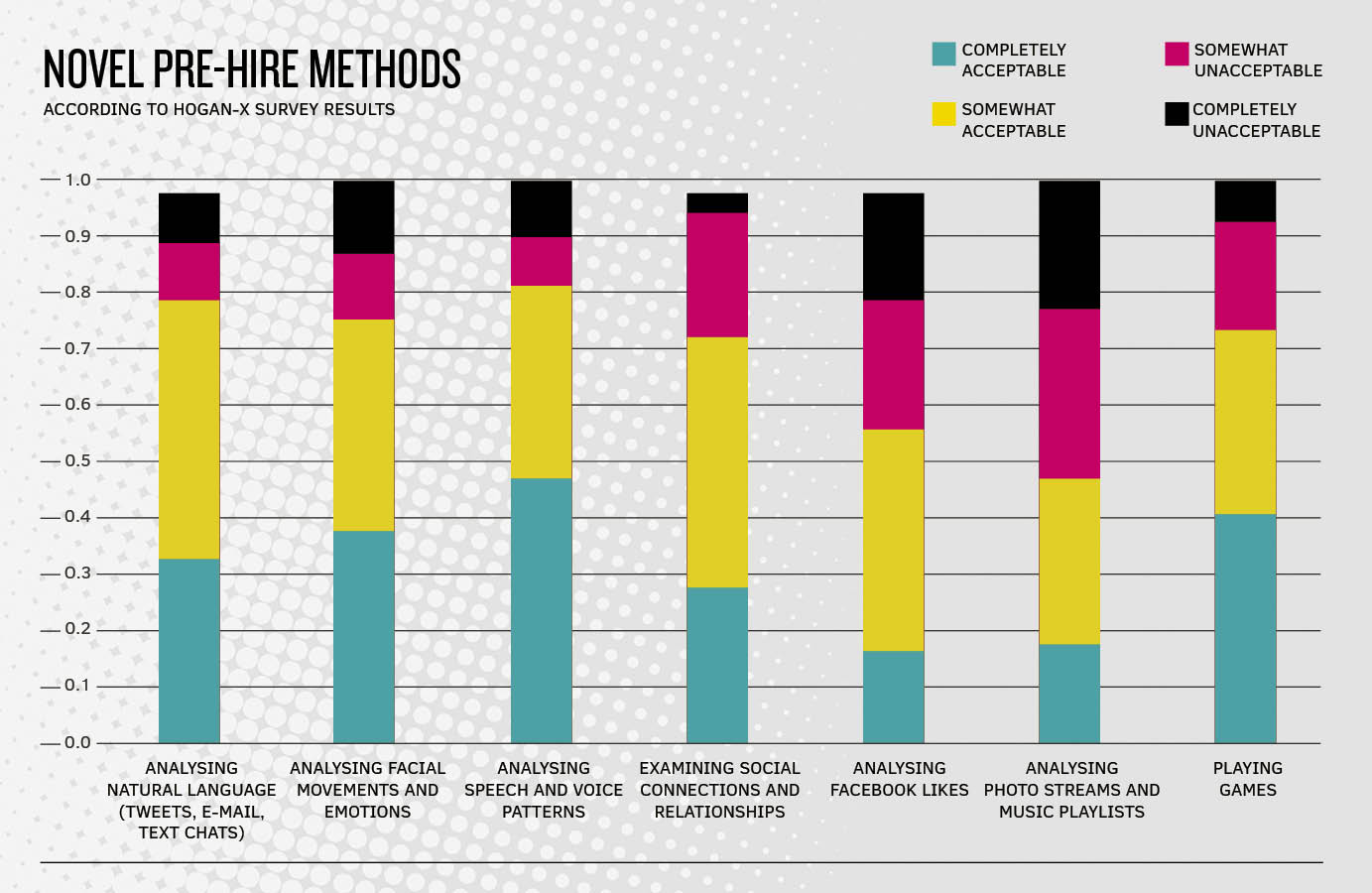There are some trends emerging in personality testing that will radically transform the field and people’s lives. And there’s no doubt that this is really exciting. These tools will usher in a world that’s much more personalised for the user. For us, the point of all this work is to help create a world in which you can better understand yourself in order to make more informed decisions and choices.
In a world where you are known more completely than ever before, good employers should be able to help you be your best and most productive self at work, and colleagues will understand just how to operate with you. So we hope the workplace may become a place in which you are helped and enabled to feel satisfied, and your skills and talents are used to best effect.
For example, emotional technologies are emerging that will provide things such as automated coaching to improve your relationship or job skills, after all a computer doesn’t offer judgment. Companies and services will start knowing not to offer you things that make you upset or angry and instead provide things that fit your psychological profile.
Assessments are being gamified so answering questions can be made interesting and fun for the test-taker. Some of these, such as Red Bull’s Wingfinder – an assessment that focuses on your strengths, the things that you’re naturally inclined to be good at, and claims to give you the tools and coaching to be even better – and Heineken’s Go Places – an interactive tool which includes a film showing how stimulating Heineken is as an employer – even serve to attract potential employees.
The easiest tools to gamify are measures of cognitive aptitude, since many games rely on fast intellectual skills to succeed. Many of these emerged from neuroscience and brain-imaging research, such as Pymetrics or MindX. We are exploring new modalities to complete assessments, such as video analysis of online interviews that looks at voice patterns, facial expressions and body movements to build a more complete picture of you.
Companies and services will start knowing not to offer you things that make you upset or angry and instead provide things that fit your psychological profile
At Hogan-X we are also developing personality tests for particular jobs that predict performance, based on only 20 questions or so, and using data from other sources to increase the accuracy. Our own selection and development solutions are driven by a targeted mix of assessments, including the Hogan Personality Inventory (HPI), which measures personality characteristics necessary for job fit, effective relationships and career success; the Hogan Development Survey (HDS), the industry standard for measuring career-derailing personality characteristics; and the Motives, Values, Preferences Inventory (MVPI), which measures values and core drivers for success.
Using tools such as these, it might be that there is a small set of people who are screened out of opportunities or who never get to try their hand at jobs they think they would like. Take pilots, for example. To find the best pilots we need to screen out people who are uncomfortable with boredom or unable to follow rigid rules and stick carefully to routines. People who need lots of stimulation and social contact tend not to do well.
But to make these sorts of decisions you have to run a lot of tests and be able to back such decisions up, something we take very seriously. We worry that many new firms don’t complete the stringent validity research to measure the extent to which a test actually predicts something of interest. If it’s the difference between someone being employed and being unemployed, you have to have empirical evidence that they are best for the job.
Our theory of talent signals is emerging as a key influence in the field with the use of big data sets that show how unrelated behaviours can be related to personality. This opens up the possibility that your likes on Facebook are actually highly predictive of personality styles. We have also collaborated with an English startup that showed personality can be reliably extracted from your bank statements. This allows the bank to understand the customer’s needs and preferences better, and of course to target you with ads for products. All these opaque testing methods will mean you can be profiled without having to fill in a fiddly questionnaire at all.
This means privacy of information starts to matter much more. Companies that provide assessment tools need to behave ethically. Though the research suggests that millennials are much less worried about knowing an employer will scan their Facebook page than older generations, this data is still there and has to be guarded properly.

It’s a long process to find out how good or bad Facebook likes are for predicting your personality. For example, we think that it will be indicative for some people some of the time. But we have to be careful of firms setting up shop and making these claims without having the rigid testing in place to back them up.
Without testing such claims, unethical firms exploit the Barnum effect that if I provide you with a description of yourself, you’re likely to say it sounds like you. Human beings are susceptible to this and firms have to be ethical in delivering the real thing.
But in an industry where the barriers to entry are very low, we keep our standards very high. We spend time and money to make sure our tools don’t discriminate and actually predict real-world outcomes. We continue to publish in peer-reviewed journals and present at scientific conferences because we care about data and real-world performance, open-to-public inspection and replication.
For more information please visit www.hogan-x.com

